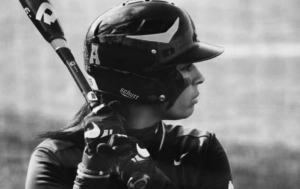College athletes are under a lot of pressure to perform well in their sport while getting their education, and are expected to be exceptional in both areas of their lives. Both require a large amount of the student athlete's time and can be very taxing. There is always an emphasis put on keeping these athletes healthy which is why most schools provide strength training and athletic trainers. These resources help the athletes stay in shape for their sport and have access to treatment if they were to sustain a physical injury, but another important aspect that athletes need to take care of is their mental health. It is just as important for athletes to be mentally healthy as it is to be physically healthy.
Related: Rate your Coaches, Facilities, and Campus Visits
As a member of any college team, it is important to look out for your teammates and check for signs that may be present when a teammate is struggling with their mental health. Here is a list of common symptoms that are seen among athletes.
Changes in Behavior
A change in an athlete's behavior can be a sign that they are struggling. Example of changes in behavior can include:
– Decrease in sports performance
– Decrease in academic performance
– Socially withdrawn
– Use of substances
– Change of daily activities
– Not enjoying their sport
Related: 5 Ways to Improve Your Mental Health When Your Coach's Training Plan is Too Much
Cognitive/Emotional/Psychological Changes
These changes may not be as easy for a teammate to identify, but are important to be aware of to look out for. Some of these symptoms occur more infrequently, and instead have to be looked for specifically, while others are more visible to those around the athlete. These signs include:
– Lack of motivation
– Difficulty concentrating
– Low self-esteem/negative self-talk
– Worry/fear
– Suicidal thoughts
Physical Signs
Often physical signs are the easiest to see, but can be hard to identify as symptoms of struggling with mental health. Many of these signs can be due to a variety of reasons, which can cause them to be overlooked as a sign of struggling with mental health. These signs include:
– Difficulty sleeping
– Headaches
– Change in weight or appetite
– Injuries
– Fatigue/weakness
It is important to care for your own mental health and watch out for those around you as well. As college athletes, there is often a lot asked of you and a lot of pressure to go along with it. Mental health should be taken as seriously as physical health and treated when needed. If you or a teammate is struggling with mental health, reach out to a teammate, coach, or for help through the resources that your school provides.
Have an idea for a story or a question you need answered? Want to set up an interview with us? Email us at [email protected]
* Originally published on October 27, 2022, by Marissa Massaro







